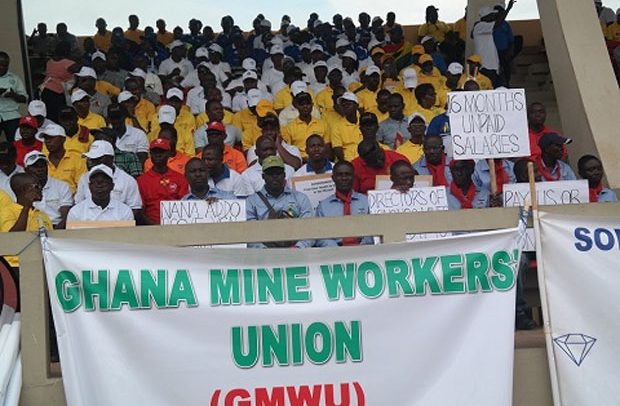The National Coalition on Mining and the Ghana Mine Workers Union (GMWU) has called for review and renegotiation of the fiscal and development agreement between Ghana and Anglogold Ashanti.
They are kicking against the tax concession and development agreement before Parliament.
This is not in the best national interest and would deny government the necessary revenue for development, GMWU said.
They revealed that the proposed reopening of the Obuasi Mine offers a not-to-be-missed opportunity for a new beginning and practice in terms of how a rich large-scale gold mine can contribute to local development.
Addressing the media in Accra, the Coordinator of the Third World Network and a member of the Coalition, Dr Yao Graham said it should not be accepted in the current form and needs to be revised.
Government and Anglogold Ashanti in February, this year, signed a fiscal and development agreement that provides the framework for the redevelopment of the mine.
In the agreement, the mining giant would be paying below the five percent royalty rate which all mining companies are required to pay by law.
It would also enjoy a tax cut – pay 32.5 percent in corporate taxes as opposed to the flat rate of 35 percent and a US$177 million waiver on imported items.
These reductions and waivers comprise a reduced corporate income tax rate, concessionary treatment of unutilised capital allowances carried forward, waiver of import duties in respect of goods to be imported for the project, a special sliding scale for royalties starting at three percent below the current fixed rate of five percent.
“These concessions are then frozen (stabilised) for 10 years under the terms of the Development Agreements, with an option to be extended another five years if certain conditions are met.”
Dr Graham warned that the Coalition and GMWU could take a legal action against government should Parliament ratify the agreement in its current form.
He pointed out that the agreement was weak on employment and training issues, because there are no measuring targets in respect to employment, adding “these are not renewable resources that should be for the benefit of the people in the future.”
The GMWU Deputy General Secretary, Abdul Moomin Gbana, said a committee made up of the catchment communities, employers, government, trade unions, NGOs and other relevant stakeholders should be put in place to manage the Community Trust Fund.
There should also be a bi-annual audit – a monitoring mechanism to make sure that the company complies with the agreement.
He stressed the need for increased stakeholder consultation to feed into the negotiation of such agreements.
Mining operation at the Obuasi Mine is expected to begin in the third quarter of 2019, with the first phase targeting the production of up to 2,000 ounces of gold per day.
Initial capital expenditure for the project, excluding production cost, is estimated to be between US$450 and US$550 million.
The project is expected to create about 2,500 jobs.
– GNA


